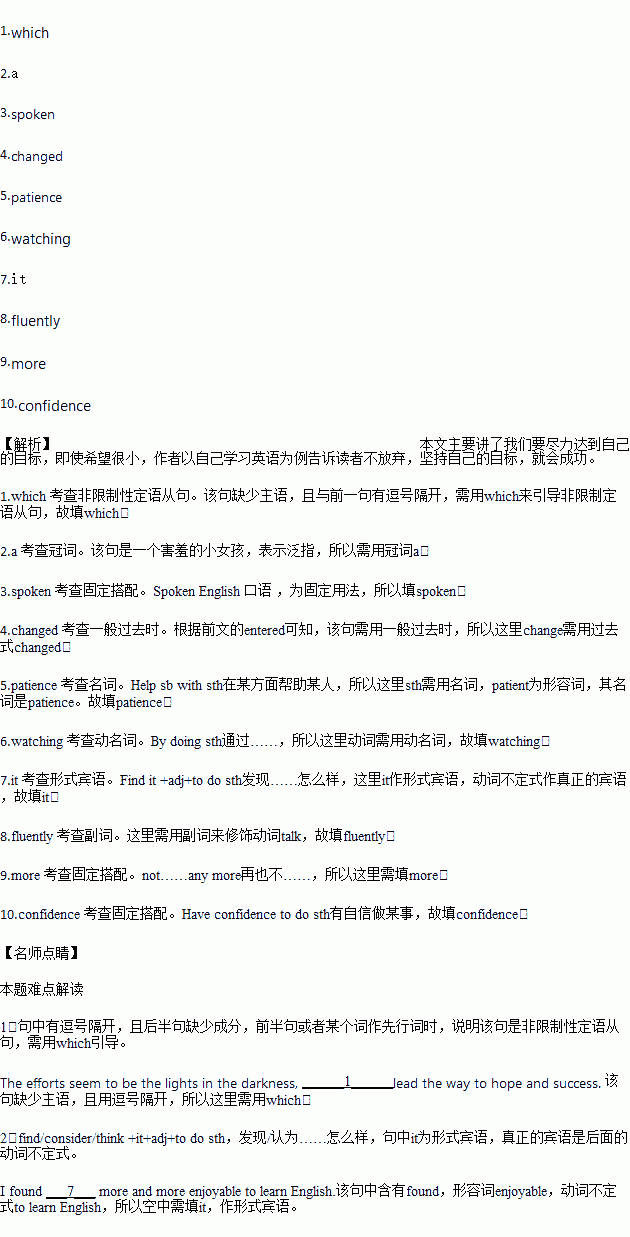题目内容
阅读下面材料,在空白处填入适当的内容(1个单词)或括号内单词的正确形式。
In my opinion, we should try our best to reach our goals even though there is little hope. The efforts seem to be the lights in the darkness, 1.lead the way to hope and success.
I used to be 2. shy girl in my primary school. I was weak in English at that time, especially 3.
(speak) English. So I was afraid to answer the teacher’s questions during English classes. After I entered my dream middle school, something4.(change). I started to read many interesting English stories and my English teacher helped me a lot with 5.(patient). I studied hard in class and practiced by 6.(watch) English films and listening to English songs in my free time. Little by little, I found 7. more and more enjoyable to learn English. I could even talk with my classmates 8. (fluent)in English and I was not shy any9.(much). At last, I got high grades in English and I had 10.(confident) to do it better in the future.
 三点一测快乐周计划系列答案
三点一测快乐周计划系列答案
